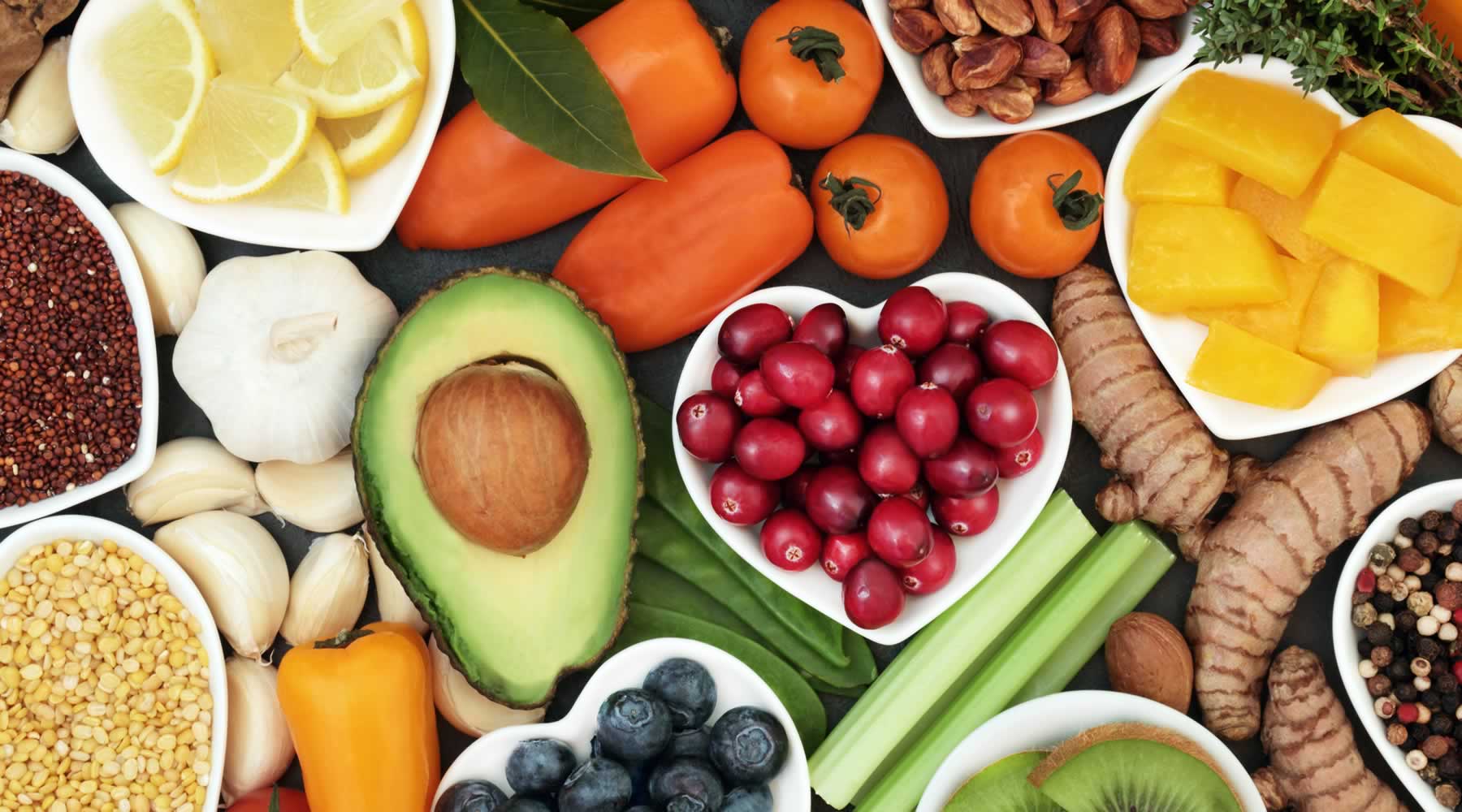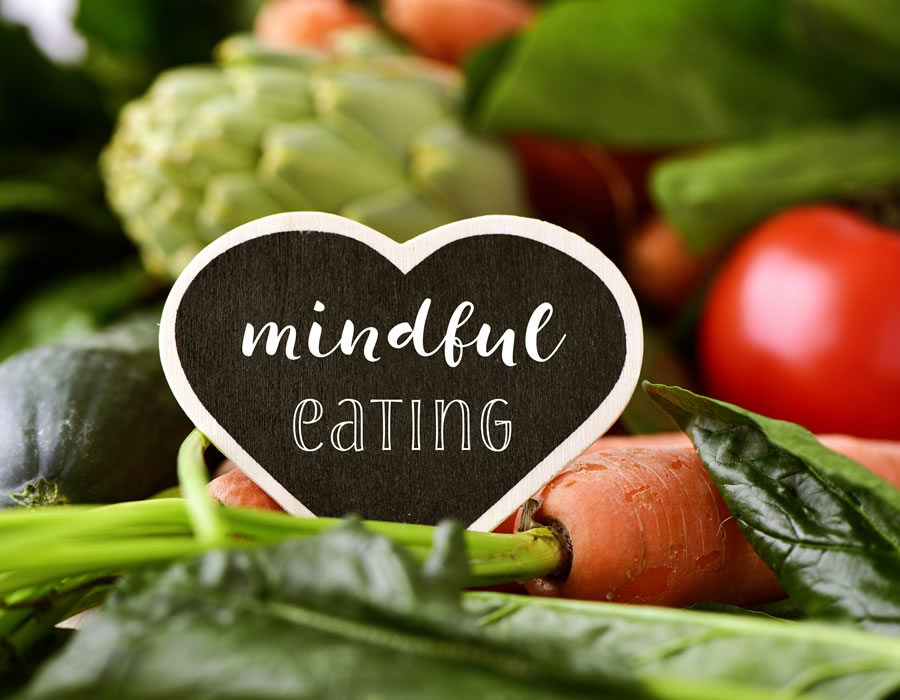
How Can Mindful Eating Help You Reduce Stress & Anxiety Around Food?
In our modern-day society, there is a huge emphasis on what and how much we are supposed to eat to meet a standardised body shape and weight
We keep changing our diet to the point when we are not sure what's really healthy anymore. There is so much confusing and contradictive information about nutrition, superfoods, and supplements that it's not a surprise that we have no idea who and what to believe. We have learned how to rely on Meal Plan, how to calculate our calories and how many steps we have to take/per day, what our weight goal is, and why eating veggies or drinking water is good for us.
But have we actually tried to live without these guidelines and instructions?
The common answers are.
"Of course, and I couldn't stop eating…"
"Without a plan, I am out of control around food."
"I need a structured guide with clear steps to follow, otherwise I just binge…"
"Whenever I'm not on a diet, I just keep overeating or restricting. Can't find a proper balance…"
Food and Nutrition cause a lot of "headaches" and anxiety in our lives. Planning, counting, developing a specific structure and lifestyle around our healthy eating habits takes a lot of hours and time out of our days, however, the fear of not being on a diet, losing control of food, and gaining weight is more often the main reason of a very deeply rooted worry which will manifest in disordered eating patterns.
We become sort of obsessed with numbers (calories, macros, scale, steps, etc.), we put our health into the hands of these numbers and let them decide how to live our lives.
Whenever we find ourselves craving our favourite foods and giving in to the temptations, we immediately feel guilty or even BAD for not being able to control our desires or stick to a simple meal plan. We have learned that some foods are GOOD and when we consume them, we are automatically good too. However, if we happen to eat foods that are considered BAD in the fitness world, we immediately think, we are BAD and to be good again, we must get back on track!
Food has become a moral compass for many of us. If we keep falling off this moral track, we may end up with a huge sense of failure and guilt. Often, we can feel lost or alone on this journey which may eventually start to take a toll on our mental and physical health too by developing symptoms of depression and anxiety.
What happened to our inner, innate, biological signals that are designed to help us choose the right food, and more importantly the right amount of food to keep our body fully functional, not just on a physical level, but emotional and spiritual level too?
How did we end up believing the INTERNET and someone (often a stranger, random fitness trainers) else more than our own body? Is it normal to be so untrustworthy towards ourselves and believe that google or another trainer knows our body more than we do?
It's been normalised, but it is certainly not normal.
Mindful Eating can be extremely helpful to find your way back to joy and guilt-free mealtimes where calories and macros can't affect your mood, or you won't feel the need to make up for your consumed extra calories by spending an extra 30 minutes on the treadmill.
No more stress around food, just simply joy and freedom.
No need to say that as soon as you decide to step on this path, the road is going to be wiggly and bumpy. There are a lot of "rules", and "restrictions" to unlearn so please whenever you decide to practice these steps and it doesn't feel natural at first, please be compassionate and patient with yourself. There may be a lot of emotions surfacing as well with Mindful Eating, which is extremely normal!
We would like to invite you to try and sit with these emotions (especially the negative ones) and welcome them instead of fighting them. Neutralising challenging feelings is the key to moving forward on a much more peaceful field where these thoughts don't have power over you anymore.

Let's dive into the Mindful Eating practice together. There are going to be a lot of questions to ask yourself, as it's a new area to be explored. We need to bring your focus more on your inner world instead of listening to external sources. Take your time with these steps
1. Increase Your Self Awareness
One thing that can be extremely jarring yet educational for your to do with yourself, is to try and gain more self-awareness for a few moments.
- What do your eating habits look like?
- Are you a fast eater?
- Do you ever sit quietly and chew your food or shovel food into your mouths at such a rate that you don't even truly enjoy the food that you're eating and it's almost joyless?
- Do you ever skip meals and overeat at night?
- Are you may be relying on food to regulate your emotions (angry, stressed, sad, happy)?
- Whenever you sit down to eat, please try to notice how you feel before you begin to eat, during, and more importantly after eating. Maybe take a few mental or physical notes on what's going on in your head when you eat?
- Is your mind jumping all over the place and there is no space for experiencing flavours/ textures?
- Do you actually enjoy your food? If not, can you tune into your body more and think of something you would eat instead? Why is that?
Try to reflect on these questions before, during, and after you finished with your meal. Practice this step a few times until it becomes more natural.
2. Take a Moment to Taste
Have you ever gotten a meal, only to discover that it's completely subpar, and you ate it just to get it over with?
It's important to begin to draw distinctions between the meals that you enjoy and the meals that you are just eating out of boredom. You might be surprised that you don't pay much attention to some meals and that eating is just a formality to begin or end the day. Taking an inventory of what you feel will help you to make better choices, and you know that higher-quality healthy foods will almost always taste a lot better. The whole point of taking a moment and slowing down is to shift your focus from being always in a rush and obsessing over numbers.
You need to explore other aspects of food and eating, in general, to be able to distance yourself from the stress and anxiety around them.
So, what we would highly recommend is to take a deep breath before the first bite, look at the food in front of you, analyse the texture of it, what it smells like, and try to visualise what's going to taste like when you finally have the full bite.
3. Avoid the Tech Zombie Binge
Eating with our phones in our hands or with the TV on is a very common way to relax and switch our minds off the day's struggles. This absent-minded eating can lead to losing control and track of the amount of food you consume, and you might end up finishing an entire bag of snacks that were meant to last for a week.
If you are less distracted, it's easier to be more mindful of how much food you are eating and whether you like it or are just on autopilot. The time you spend with your food should be spent developing good habits that lay the path for better, more healthy choices in the future.
Start today!
Additional Support
If you're looking for extra motivation or guidance in your health and wellbeing journey, one-to-one sessions with a dedicated trainer can make a real difference to your wellbeing. Our personal trainers are here to help! Find out more by clicking the link below.





